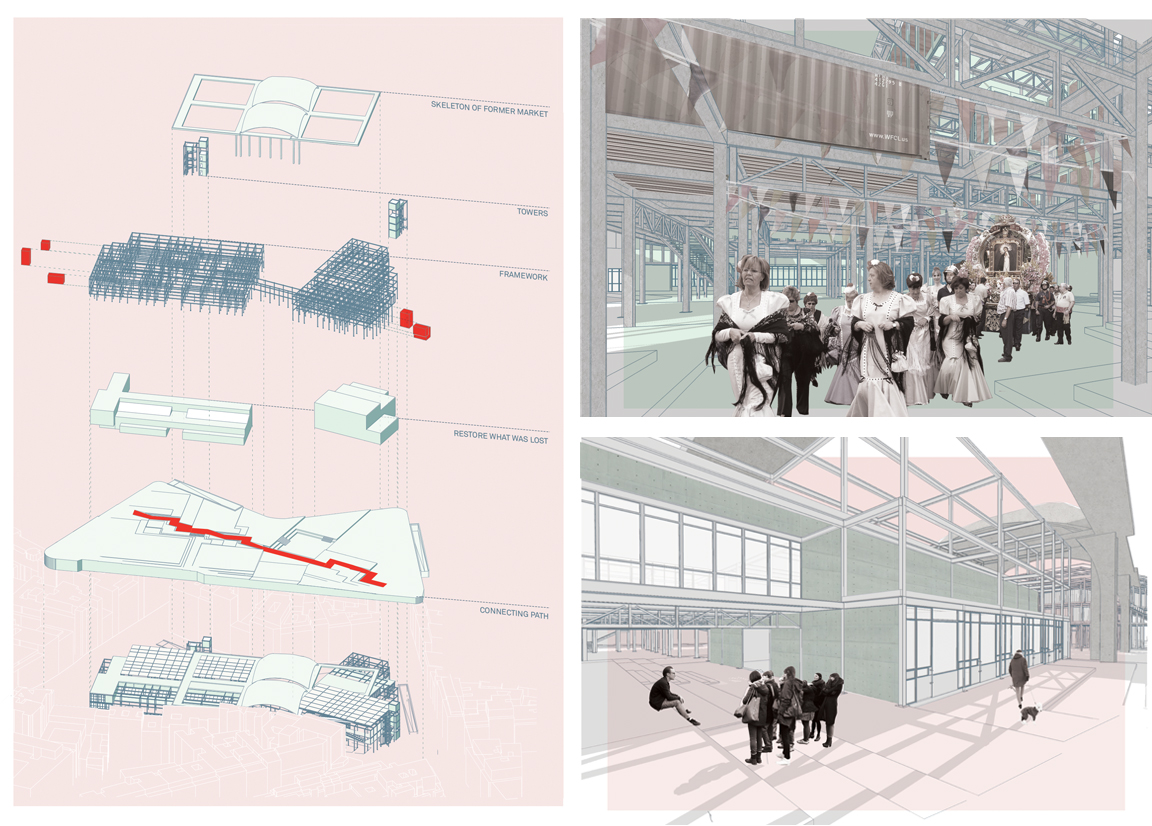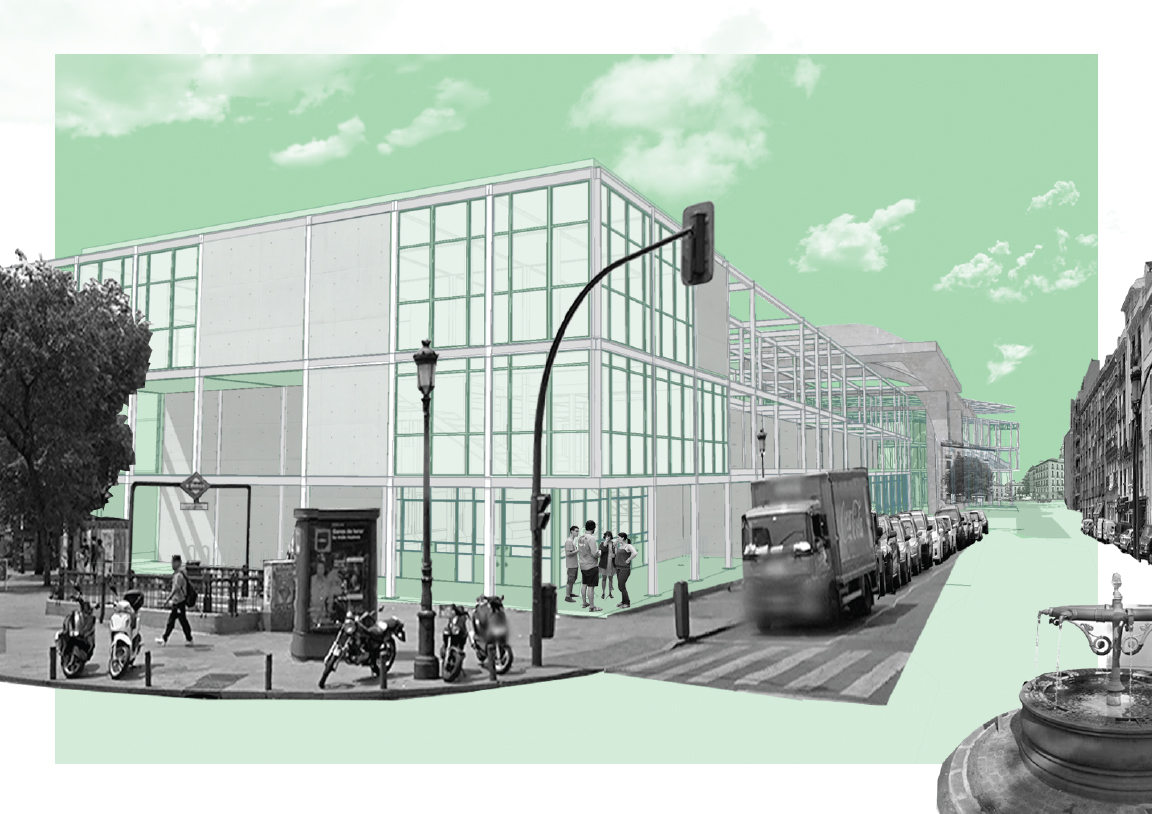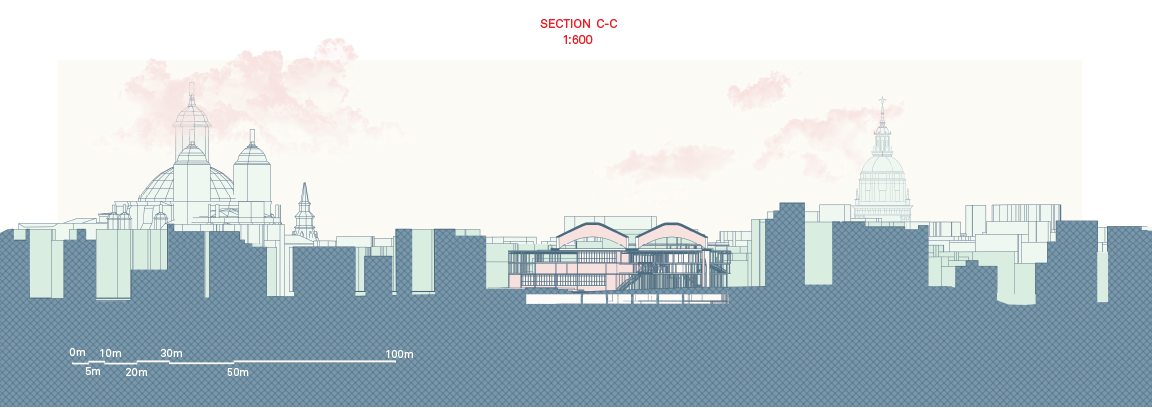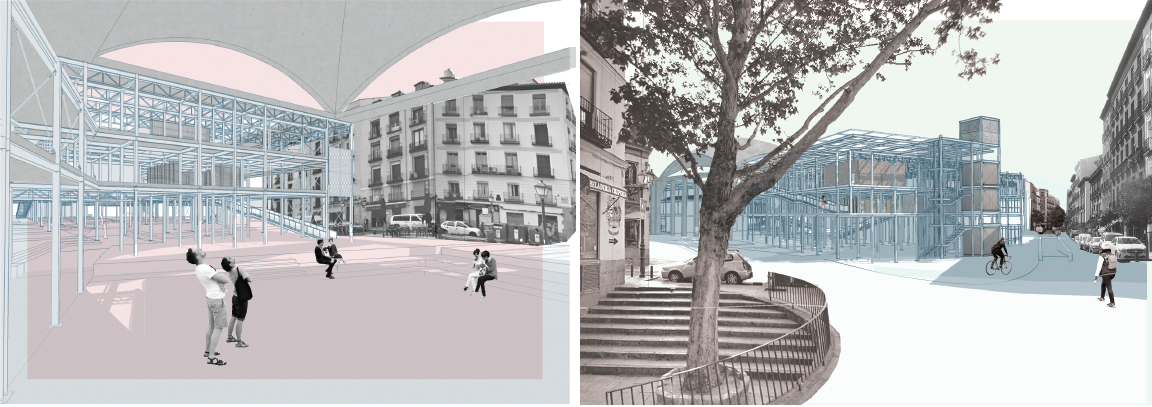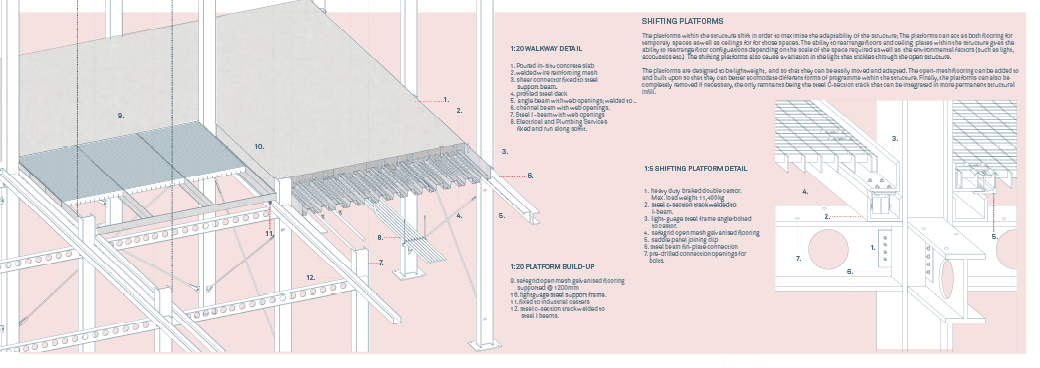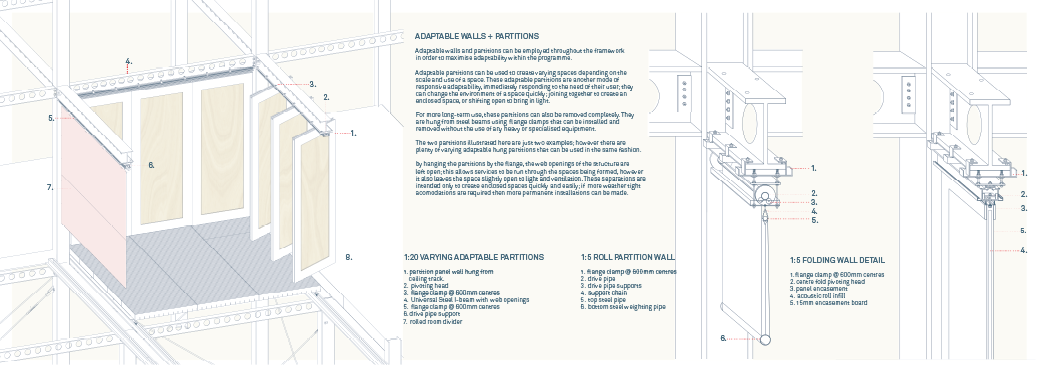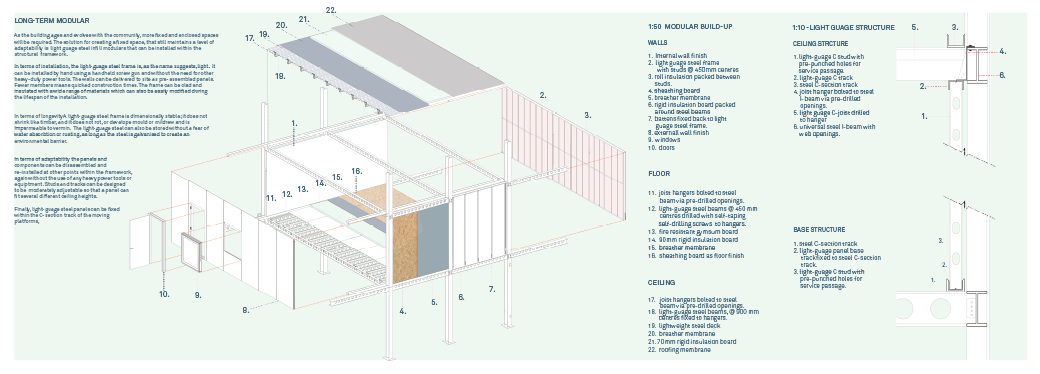SPACES OF COMPROMISE; an evolving social laboratory
For my final thesis, The European City Project, my class was assigned the Spanish capital city of Madrid as our metropolitan focus. My thesis group ‘fields of interaction’ focused on the varying ‘living fields’ within the centre of Madrid and mapped the city based on social, political, economic, commercial and cultural hubs. We then focused our areas of research on the places of significance based on where these fields intersected and overlapped, showing the most significant areas of the city for local residents. I choose to focus on the political fields of interaction within the city; where 3 political spheres showed themselves, spaces of political power, space of political resistance, and finally spaces of political ‘compromise’. It was on these ‘Spaces of Compromise’, that I chose to focus my thesis; where informal and abandoned spaces are reclaimed by grassroots organizations aimed at serving their local neighbourhood. My thesis research explores the relationship between a formal structural framework designed to accommodate incremental and adaptable self-build space, in order to encourage the autonomy and empowerment of the residents Lavapies, a densely populated and underprivileged city centre area where these grassroots organizations seem to proliferate. The overall site scheme integrates this framework with more fixed and formal programmed space to fulfill present community needs, and to explore a hybridization of adaptable and fixed structures to examine a new typology that might maximize the potential and life span of a community centre.
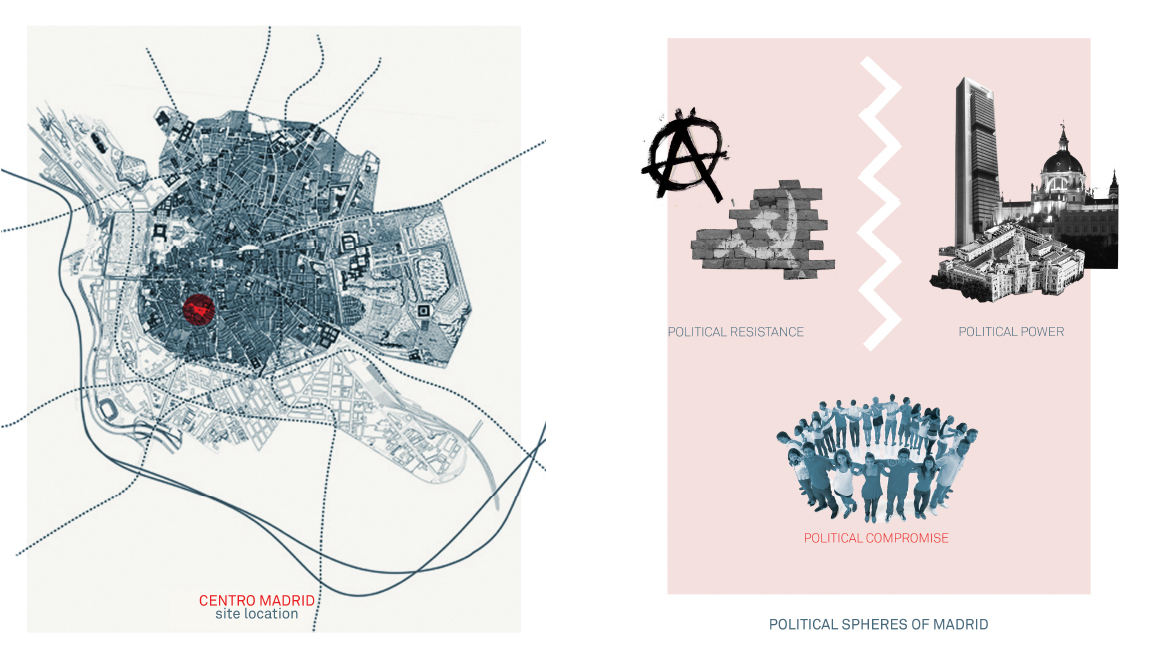
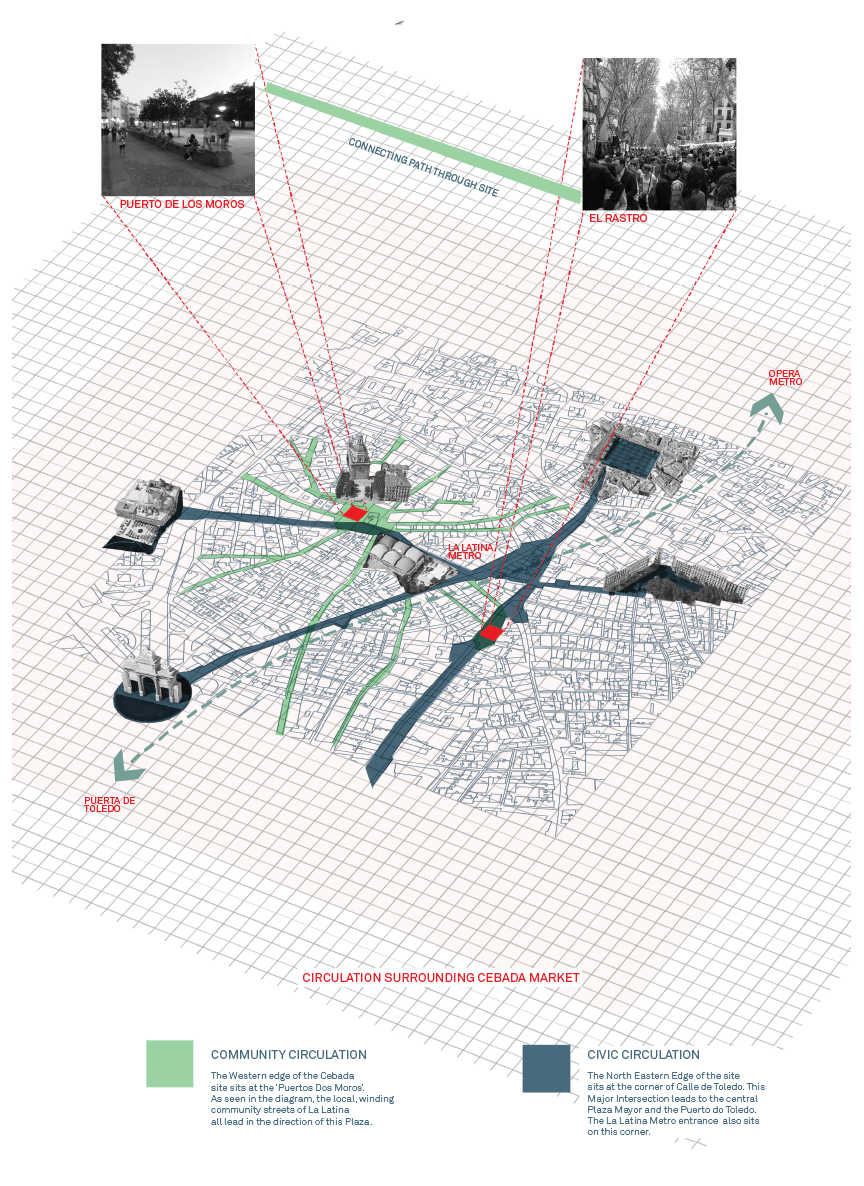

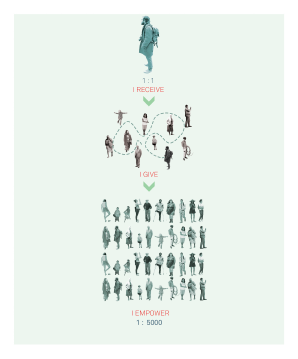
red solidaridad popular
The R.S.P. movement arose during the economic crisis in Spain; they encourage communities to care for one another through the creation of locally focused organisations. Their motto is ‘I receive, so I give”. The Madrid chapter of their movement uses the Campo de la Cebada as a space to hold meetings and teach people how to begin their own organisation.
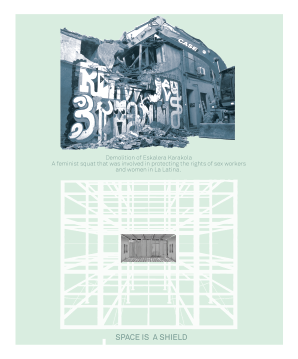
Space as a Shield
Many of the community driven organisations that exist throughout Madrid take up residence in abandoned buildings and gap sites; although generally these communities have some sort of legal protection for their occupation, they are rarely safe from dissolution. The creation of designated space for these organisations can act as a sheild from problems such as eviction, robbery, land development prospecting and demolition
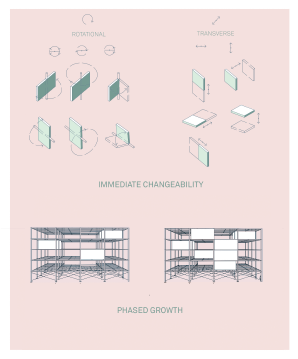
Adaptability and Phased Growth
One form of adaptability, is one that immediately responds to the users needs; the ability to shift building components in a simple manner can change the environment, arrangement and use of a space in a way that is simple and immediate, in order to combat the tendency for stagnation. Another form of adaptability is the phased growth and insertion of different, more permanent, infill. This evolution of the structure over time, as specific and necessary uses can be determined, will allow the building to adapt and change with the community over a longer span of time.
